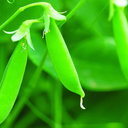Neuroprotective Effect of Coptis chinensis in MPP[Formula: see text] and MPTP-Induced Parkinson's Disease Models.
Từ khóa
trừu tượng
The rhizome of Coptis chinensis is commonly used in traditional Chinese medicine alone or in combination with other herbs to treat diseases characterized by causing oxidative stress including inflammatory diseases, diabetes mellitus and neurodegenerative diseases. In particular, there is emerging evidence that Coptis chinensis is effective in the treatment of neurodegenerative diseases associated with oxidative stress. Hence, the aim of this study was to investigate the neuroprotective effect of Coptis chinensis in vitro and in vivo using MPP[Formula: see text] and MPTP models of Parkinson's disease. MPP[Formula: see text] treated human SH-SY5Y neuroblastoma cells were used as a cell model of Parkinson's disease. A 24[Formula: see text]h pre-treatment of the cells with the watery extract of Coptis chinensis significantly increased cell viability, as well as the intracellular ATP concentration and attenuated apoptosis compared to the MPP[Formula: see text] control. Further experiments with the main alkaloids of Coptidis chinensis, berberine, coptisine, jaterorrhizine and palmatine revealed that berberine and coptisine were the main active compounds responsible for the observed neuroprotective effect. However, the full extract of Coptis chinensis was more effective than the tested single alkaloids. In the MPTP-induced animal model of Parkinson's disease, Coptis chinensis dose-dependently improved motor functions and increased tyrosine hydroxylase-positive neurons in the substantia nigra compared to the MPTP control. Based on the results of this work, Coptis chinensis and its main alkaloids could be considered potential candidates for the development of new treatment options for Parkinson's disease.




